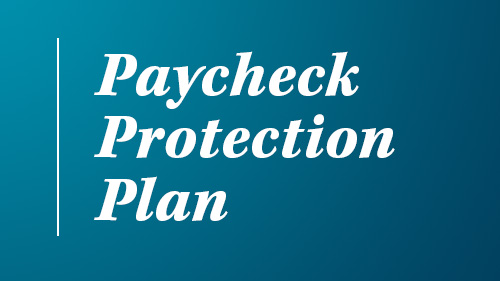Serving Our Small Businesses, One PPP Loan at a Time
Honored. Dedicated. Proud.
Manage your everyday finances with convenient accounts, flexible cards, and personalized service designed to fit your life.
At First Federal Bank, we offer flexible mortgage solutions for almost any situation, helping you secure the right financing for your dream home.
Business banking offers secure financial management, streamlined transactions, credit options, and tools to help businesses grow efficiently and sustainably.
2 min read
First Federal Bank : April 2, 2025 10:00:00 AM EDT

 The economy is top of mind for many Americans these days. One age group in particular is struggling with finances. Approximately 60% of Gen Zers currently live paycheck to paycheck, higher than the overall rate of Americans in that situation. If you fall into this category, there are things you can do to improve your financial situation today and set yourself up for future success. It starts with developing good money habits, and avoiding certain common mistakes.
The economy is top of mind for many Americans these days. One age group in particular is struggling with finances. Approximately 60% of Gen Zers currently live paycheck to paycheck, higher than the overall rate of Americans in that situation. If you fall into this category, there are things you can do to improve your financial situation today and set yourself up for future success. It starts with developing good money habits, and avoiding certain common mistakes.
Not Building an Emergency Savings Fund
“Saving is one of the most crucial financial actions you can take for your future. This includes preparing for unexpected expenses as well as setting yourself up for a comfortable retirement,” said Casey Brueske, community education development specialist of PenAir Credit Union. “There are numerous ways to make saving work for you. For instance, by depositing your money in a high-yield savings account, you can allow your funds to work for you. Additionally, compounding interest can be a significant advantage.”
Falling For Buy Now, Pay Later Traps
“You delay the consequence of spending by using credit and buy-now-pay-later schemes, which makes spending more addictive. When you delay the consequences of spending by spreading the cost of something over a longer period of time, you’ll get more excitement from shopping, and this will likely make you addicted to shopping. This is a problem,” said Shane Enete, associate professor of finance at Biola University’s Crowell School of Business.
Treating Credit Like Free Money
“Credit cards aren’t evil, but using them recklessly can wreck your financial future. Missing payments or maxing out your card can tank your credit score, making it harder to rent an apartment, buy a car or even get a job,” Chakraborty said. “Instead, use credit strategically — keep utilization low, pay off balances in full and regularly check your credit score.”
Being Afraid To Lose Money
“Gen Zs avoid investing because it seems too complicated. I think this needs to be corrected as early as possible. You don’t have to be Warren Buffett to just throw some money into the S&P 500 or an index fund or something and forget about it for the next 10 years,” said Lucas Barcelo, founder of Thrivin Life.
Allowing Emotions To Drive Their Decisions
“This is a big one, especially now with the current volatility and turbulence in the stock markets. This can create unrest and anxiety when a person looks at their account values going down and will cause them to question if they are doing the right thing. The reality is that ‘timing’ the market is impossible,” said John Foard, co-founder of Crown Advisors.
Not Starting To Save for Retirement Now
“Gen Z is at the perfect age to build their retirement savings and enjoy the benefits of compounding interest over time. If they wait to start saving, they’ll end up having to save a lot more because their money won’t have time to grow with interest,” said Melanie Musson, finance expert at InsuranceProviders.com.
For more tips, you can read the full article here.
It can be difficult to focus on the future if you are struggling in the present. But by making a few simple changes, you can feel more comfortable with your finances today, while ensuring you will have a more secure tomorrow!

Honored. Dedicated. Proud.

Honored. Dedicated. Proud.
First Federal has a long legacy of community commitment. Our employees spend countless hours throughout the year donating their time and even money,...
Manage your accounts, make payments, and more.
Open an account with us.